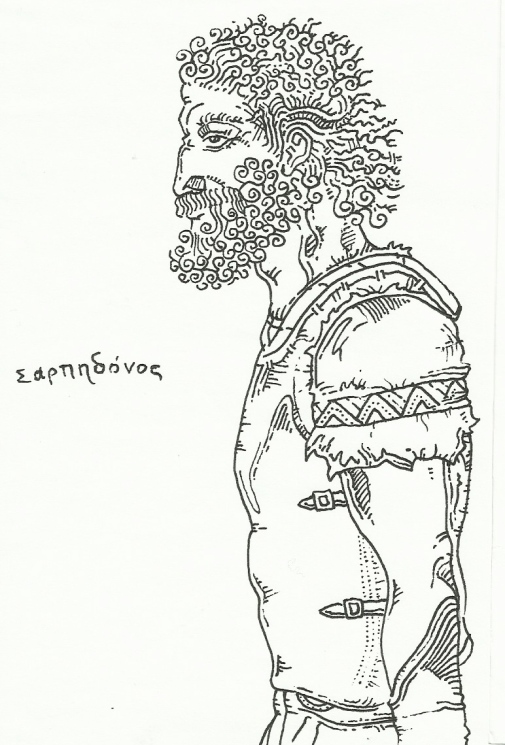One of my favorite books on war is the Greek classic Iliad by Homer. The account of a 10 year Achaean siege of Troy is one of the most gripping and beautiful tales of war, conflict, human psychology and storytelling. Iliad is where we got the Trojan Horse and Achilles Heel, and Iliad permeated the imagination and psyche of generations of later conquerors and empire builders, most notably Alexander the Great, Julius Caesar and Napoleon, all of whom were familiar with this book and learned the psychology of war from this ancient text. What is incredible about reading this narrative is how realistic it is, how free of patriotic jingoism its text is, its dark and full of sorrow. The scenes of battle and death can describe any modern battlefield to the exact detail (Some American veterans are reading Iliad as part of therapy after coming back from A-stan and Iraq). The feelings of soldiers on the battlefield and their loss of comrades, loss of sanity or loss of limbs and life, cuts like a knife from this text (a text thats over 2,500 years old). The soldiers openly defy their commanders about the aims of the war. When Iliad starts, Achilles is raging in a feud with his king, and openly questions why he and his soldiers are in this war when they have no beef with the Trojans. The book is dripping with description of death and horrors of war.
Now the sun of a new day struck on the ploughlands, rising out of the quiet water and the deep stream of the ocean to climb the sky. The Trojans assembled together. They found it hard to recognize each individual dead man; but with water they washed away the blood that was on them and as they wept warm tears they lifted them on to the wagons. But great Priam would not let them cry out; and in silence they piled the bodies upon the pyre, with their hearts in sorrow, and burned them upon the fire, and went back to sacred Ilion. In the same way on the other side the strong-greaved Achaians piled their own slain upon the pyre, with their hearts in sorrow, and burned them upon the fire, and went-back to their hollow vessels.
The scenes describing combat and death are gory and dark and show the full extent of the horror of war,
Antilochos was first to kill a chief man of the Trojans, valiant among the champions, Thalysias’ son, Echepolos. Throwing first, he struck the horn of the horse-haired helmet, and the bronze spearpoint fixed in his forehead and drove inward through the bone; and a mist of darkness clouded both eyes and he fell as a tower falls in the strong encounter. … Now Amarinceus’ son Diores—fate shackled Diores fast and a jagged rock struck him against his right shin, beside the-ankle. Pirous son of Imbrasus winged it hard and true, the Thracian chief who had sailed across from Aenus … the ruthless rock striking the bones and tendons crushed them to pulp-he landed flat on his back, slamming the dust, both arms flung out to his comrades, gasping out his life. Pirous who heaved the rock came rushing in and speared him up the navel—his bowels uncoiled, spilling loose on the ground and the dark came swirling down across his eyes.
I highly recommend this book even if you’ve seen the movie Troy (the movie was nowhere close to matching Homer’s narrative and completely changed the story line in many places), and if you want the best and most gripping translation, pick up the Robert Fagles translation. It reads in a forceful pace thats easy to understand for a modern reader unlike the older 19th century translations. I’m illustrating some characters from the book for fun, gonna add some more later (Hector, Achilles, Ajax, Nestor, Pandarus)
Diomedes – a total badass Achaean (Greek) warrior. He was apparently inspired by Athena during combat and was so effective on the battlefield he wounded 2 actual gods, Ares and Aphrodite. (Ares being a god of war)
He fights with fury and fills men’s souls with panic. I hold him mightiest of them all; we did not fear even their great champion Achilles, son of an immortal though he be, as we do this man: his rage is beyond all bounds, and there is none can vie with him in prowess.
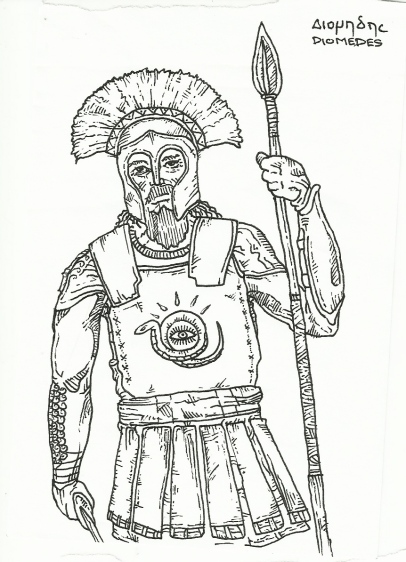 Helen of Troy – the casus belli for the Greeks, Agamenon’s excuse for invasion of Troy. Also the most beautiful woman in Greece.
Helen of Troy – the casus belli for the Greeks, Agamenon’s excuse for invasion of Troy. Also the most beautiful woman in Greece. 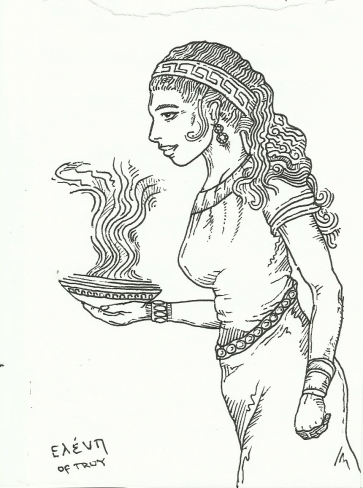 Odysseus – the Greek commander who came up with the idea of the Trojan Horse, that eventually led to the collapse of Troy. Hero of Homer’s other classic, the Odyssey.
Odysseus – the Greek commander who came up with the idea of the Trojan Horse, that eventually led to the collapse of Troy. Hero of Homer’s other classic, the Odyssey. 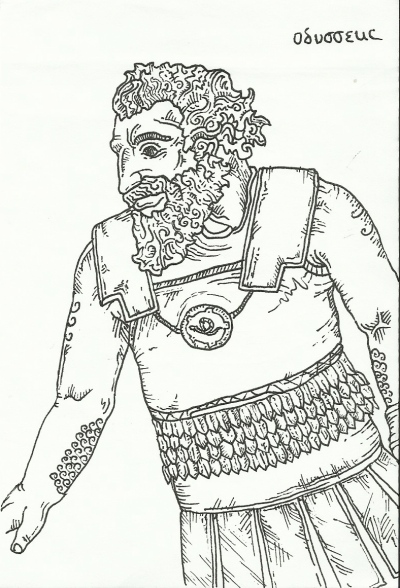 Xenophon – technically not part of the Iliad, he was a famous Greek general who enlisted as a mercenary hoplite captain in the Persian army of Cyrus the Younger. He wrote the narrative Anabasis – a description of his Persian campaign and the march of 10,000 Greek hoplites from Persia back to Greece. If you’ve seen the movie The Warriors (about a Brooklyn street gang in 1970s, the story of this movie is based on Anabasis). Alexander the Great used Xenophon’s Anabasis as a guide on how to invade and conquer Persia in 331 BC.
Xenophon – technically not part of the Iliad, he was a famous Greek general who enlisted as a mercenary hoplite captain in the Persian army of Cyrus the Younger. He wrote the narrative Anabasis – a description of his Persian campaign and the march of 10,000 Greek hoplites from Persia back to Greece. If you’ve seen the movie The Warriors (about a Brooklyn street gang in 1970s, the story of this movie is based on Anabasis). Alexander the Great used Xenophon’s Anabasis as a guide on how to invade and conquer Persia in 331 BC. 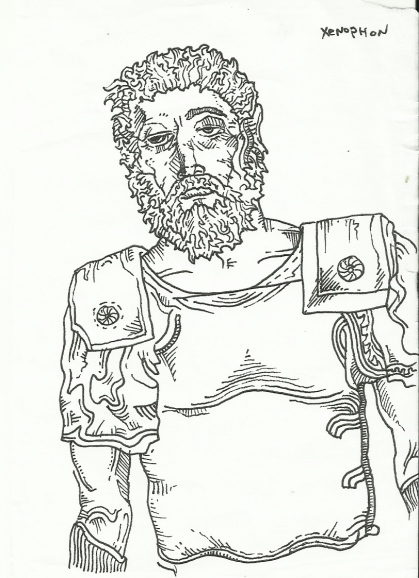
Sarpedon – the king of Lycia who came to help the Trojans. A true warrior, he was speared to death by Patroclus 